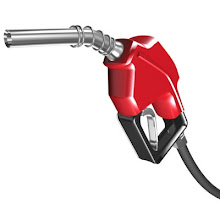
Full-service gas stations are a thing of the past. You can't tell whether your tires need air by looking at them or even by kicking them. It's up to you to check and add air to your tires monthly.
Things You’ll Need:
Gas Station or Garage with Pressurized Air
Tire-pressure Gauge
Step 1:
Go to a gas station or garage that has pressurized air with a gauge.
Step 2:
Park your car so you can reach all four tires with the air hose.
Step 3:
Find the air-pressure specifications for your car's tires. Look for a sticker located on the driver's side doorjamb or in the glove box or trunk.
Step 4:
Unscrew the plastic cap on the air valve. Put it in your pocket so you don't lose it.
Step 5:
Check the air pressure using either your own tire-pressure gauge or the one on the gas station air pump. Press the gauge against the valve and hold it down firmly. If you hear a hissing noise, you are letting air out. Press down harder.
Step 6:
Add air as necessary. Press the air pump hose on the valve while squeezing the lever on the end of the hose.
Step 7:
Check the air pressure with your gauge, or use the one on the air pump hose.
Step 8:
Deflate the tires if you accidentally overfill them. Press down on the small needle in the center of the valve to let air out. Most tire-pressure gauges have a small knob for this purpose, but a fingernail or a pen will do the trick.
BI-TRON GLOBAL has a cool product (click on the 'Products' link) that you can add to your tires to prevent flat tires...check it out!





